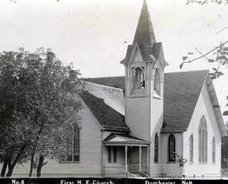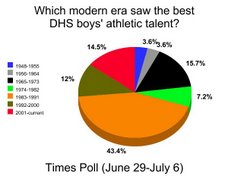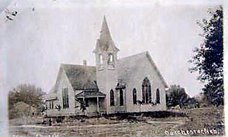 The Lincoln Journal Star reports that smaller schools perform better in tightening the budget belt.
The Lincoln Journal Star reports that smaller schools perform better in tightening the budget belt.According to the article, when the state got its "financial bombshell in December in the form of a $53 million unexpected increase in state aid to schools, Gov. Dave Heineman wanted to know more. What was driving the increase? Which school districts were spending the most and why?"
The Journal-Star reports the governor learned the 53 schools in the category of “sparse” enrollment increased spending an average of 4.4% from the period 2005-06 and 2006-07. The smallest schools reported 6.2% spending growth. The largest schools — 18 of them — with budgets over $20 million, increased spending an average of nearly 8%. Omaha and Lincoln were included in the 18 largest schools, with increases of 9% for Omaha and nearly 8% for Lincoln.
Lexington Public Schools had the highest increase of large schools, at 15%. Kearney schools showed a nearly 13% increase. South Sioux City, 11%. And there were lower increases, most notably Norfolk and Scottsbluff schools at about 2% each.
The reasons for the increases are as complicated, as the governor is learning. But Dennis Pool, Omaha Public Schools assistant superintendent, said increases come from three main factors:
- high numbers of students whose primary language is not English;
- from large increases in heating and bus fuel costs; and
- from double-digit health insurance increases.
We think this news is positive proof that schools the size of Dorchester are not the key drivers behind the unsustainable increase in state aid costs. Large, urban education bureaucracies and the teachers' union are more likely culprits. Neither has ever seen a tax or spending increase that's too big. Savvy taxpayers knows that about two-thirds of their property tax bill goes directly to the local school district. Folks in Lincoln, Omaha, Lexington, South Sioux City and Kearney can't be too happy after reading the Journal Star's story.
However, we also believe this article and its staggering figures serve a reminder to Dorchester school board members and administrators that the pressure is on to hold the line on spending.


















































Too many school boards across the state like to play the role of Santa Claus by giving away other people's money. More of them need to add the word no to their vocabularies.
ReplyDeleteThe biggest drain on schools isn't playing "the role of Santa Claus." It's likely all the additional requirements that are passed on by the Federal and State governments. Most of those requirements are unfunded mandates. Schools have to comply - but there's no money coming from the government to pay for the costs for the new programs.
ReplyDeleteUh, re-read the line from the story: The state is expected to send about $885.5 million in general fund taxes to public schools next year.
ReplyDeleteHow can you say there's no money coming from the government?
I do agree the feds need to back off on mandates.
Class of 87 --
ReplyDeleteUh, re-read the second to the last word in my statement. "..costs for the NEW programs."
Are you sure that the teachers' unions are likely culprits? According to their union, the Nebraska State Education Association notes that Nebraska teachers are ranked 43rd in pay. The average yearly salary in Nebraska is $41,000. Education initiatives have placed Iowa and Wyoming ahead of Nebraska. Nebraska is not known for being a strong union state. Rather than increasing property taxes, would an education trust fund using the state's cash reserve make more sense? I'm afraid Nebraska will begin losing its best teachers to neighboring states due to competitive salary offers.
ReplyDeleteHey, DC ... I'm awake and smelling my coffee. The state's cash reserve is around $500 million. The state is expected to pay $885 million in general fund dollars(from state sales & income taxes) next year for state aid to schools. Your plan wouldn't work even as a one year fix. Nebraskans want local control of their schools, they need to pay for their education with local property taxes. Here's how you lower costs. (1.) Don't supply spanish speaking teachers/don't cater to spanish speaking students. (2.) Hire teachers who can teach more than one subject. (3.) Ask alumni to occassionally donate funds, like universities and colleges do.
ReplyDeleteI agree with DC Husker. Nebraska needs to make itself more attractive for retaining competant professionals. I'm afraid the entire state will end up like the Third Congressional district.
ReplyDelete